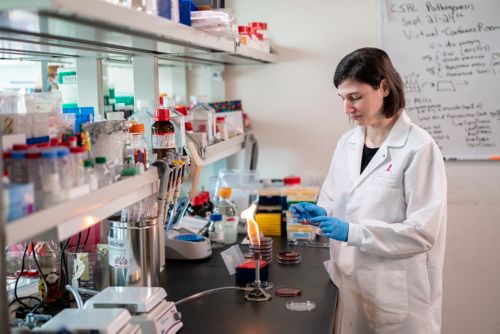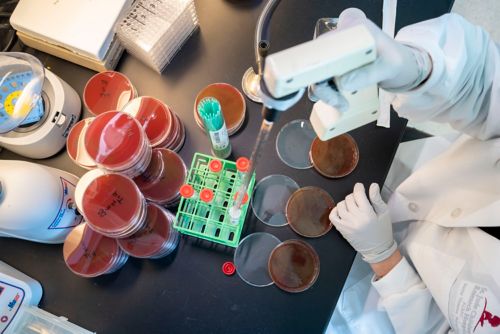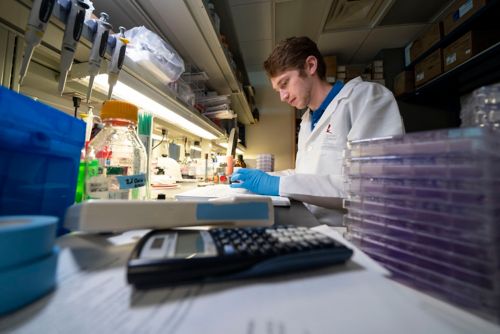Jason Rosch Lab
Exploring host-pathogen interactions and antibiotic resistance in respiratory diseases of children
About the Rosch Lab
Infectious disease, including respiratory infection, is one of the leading causes of childhood mortality worldwide. To combat these mortality rates, our laboratory works to enhance our understanding of respiratory infections in children. We seek scientific insights into questions around why some patients are more prone to respiratory illness and what makes antibiotic treatment fail. Our work broadens our fundamental understanding of childhood respiratory infections and contributes to the development of unique therapeutics.

Our research summary
Respiratory infections significantly contribute to childhood mortality on a global scale. As we pursue evidence that enhances our understanding of these infections in children, our laboratory focuses our research efforts on host-pathogen interactions in streptococcus pneumoniae and a broad study of antibiotic resistance.
Host-pathogen interactions
As we study host-pathogen interactions, we seek to understand the factors that drive an increase in susceptibility to disease. Some patients show markedly higher susceptibility to infection, and our guiding question is how bacteria utilize distinct strategies to infect these hosts. To study bacterial genetics and pathogenesis, we use techniques such as transposon sequencing (Tn-seq), RNA-seq, and various model systems. We then leverage these findings to advance the development of therapeutics.
Beyond an investigation into disease susceptibility, our interest lies in the operation of bacterial and viral synergies and how disease progression changes when you have multiple pathogens simultaneously at play. We utilize St. Jude’s cutting-edge microscopy facilities to examine these bacterial and viral pathogenic interactions and probe the consequences of these interactions for both the virus and the bacterium.

Antibiotic resistance
Given the barriers antibiotic resistance poses to the treatment of infections, our research examines the evolution of antibiotic resistance and why resistance develops in certain populations. Using an experimental evolution approach, in which we conduct deep sequencing to identify population variants, we study how immune-compromised populations can serve as a reservoir for the emergence of factors that are important in the development of resistance. Using in vitro and in vivo models, we assess what happens when we remove the immune system from the environment and how bacteria respond. Our findings show there are unique pathways involved in a lack of immune selection, which provides bacteria more options to respond to the presence of antibiotics. Our work involves multiple classes of antibiotics, and our goal is to discern why antibiotic treatment fails.

At the core of our work is our desire to aid in the development and delivery of proper therapeutics to children with respiratory infections. On top of our research efforts, we partner with the clinical teams at St. Jude to discover the best treatment for patients with challenging infections. Discovering molecular insights to guide proper therapeutic treatment of respiratory infections in children is a rewarding component we hope to expand on a global scale in the future.
Publications
This is a brief highlight showing the publications on the page.
Contact us
Jason Rosch, PhD
Member, St. Jude Faculty
Department of Host-Microbe Interactions
MS 221, Room D2058C
St. Jude Children's Research Hospital

Memphis, TN, 38105-3678 USA GET DIRECTIONS